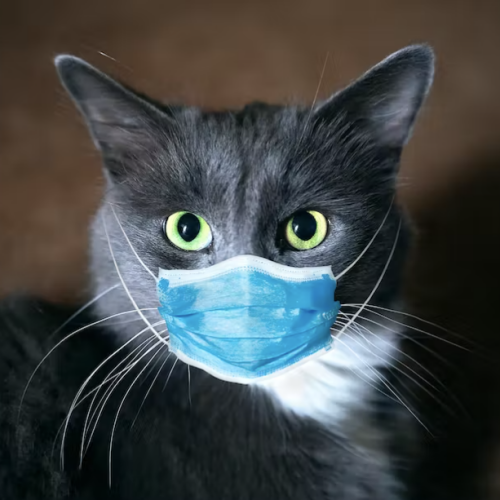
Soft kitty, warm kitty, little ball of fur! Happy kitty, sleepy kitty, purr purr purr! Sheldon Big Bang Theory
Skin is the largest organ of the body, with skin cells turning over rapidly. This means that virtually all of the skin is covered with hair that has been shed and replaced several times each year. A healthy feline coat should be smooth and shiny, and the skin should be supple and clear of any redness, bumps, greasiness or dryness. There are many ways to help promote and maintain skin and coat health throughout your cat’s life.
A complete and balanced cat food containing highly digestible proteins, carbohydrates and fats and made without by products, artificial preservatives and chemicals is key to overall health. Poor quality diets often lead to dull, dry skin and excessive shedding often accompanied by disproportionate licking and scratching.
Natural supplements containing omega-3 fatty acids from marine sources such as fresh caught salmon may help support the reduction of shedding and growth of the under coat. Supplemental flax seed oil containing omega-6 fatty acids is not beneficial to cats.
Regular brushing helps remove loose hair and dead skin cells, keeps coats free of dirt and debris and helps distribute natural skin oils along hair shafts. Cats with long coats should be brushed daily to reduce the formation of mats around ears, back of legs and underbelly. Short haired cats require less frequent brushing. Brushing is a good time to inspect skin for any signs of skin irregularities or fleas.
Cats are meticulous groomers, often washing themselves several times a day. As hair collects in a cat’s digestive tract, it forms a hairball, most of which are harmlessly coughed up or passed through the intestinal tract. Cats with long hair and those that shed heavily or groom excessively are especially prone to developing hairballs, but diligent skin care helps preclude excessive hairball formation.
Cats rarely require bathing, but if you do, use only shampoos formulated specifically for cats that do not contain added perfumes. Because cats groom themselves after bathing, completely rinse off the shampoo until water runs clear. Check with your veterinarian to see if a specific therapeutic shampoo might be more beneficial than an over-the-counter product if shampooing is needed.
Weather and seasons can affect your cat‘s skin and hair coat. Cats that live in cooler climates undergo two heavy seasonal shedding cycles each year during which much of the undercoat falls out in bunches. Cats kept inside tend to shed small amounts of hair all year round. Some suffer from dry winter conditions especially when there is excessive heat and low humidity in the house. Many cats have allergies to pollen from grass or trees during fall or spring.
Keep your house and yard free of fleas because even a single bite of a flea can create severe skin irritations and subsequent hair loss.Use only flea control products formulated specifically for cats–not dogs–and treat the environment and any other pets in the household.
Diligence in caring for your cat’s skin and coat beginning as a kitten and continuing through adulthood and senior years ensures a soft kitty, warm kitty, little ball of fur.
Contact: VETFLIX
Phone: 401-859-1579
E-mail: info@vetflix.pet
Add: 26 Gooding Ave, Bristol, RI 02809